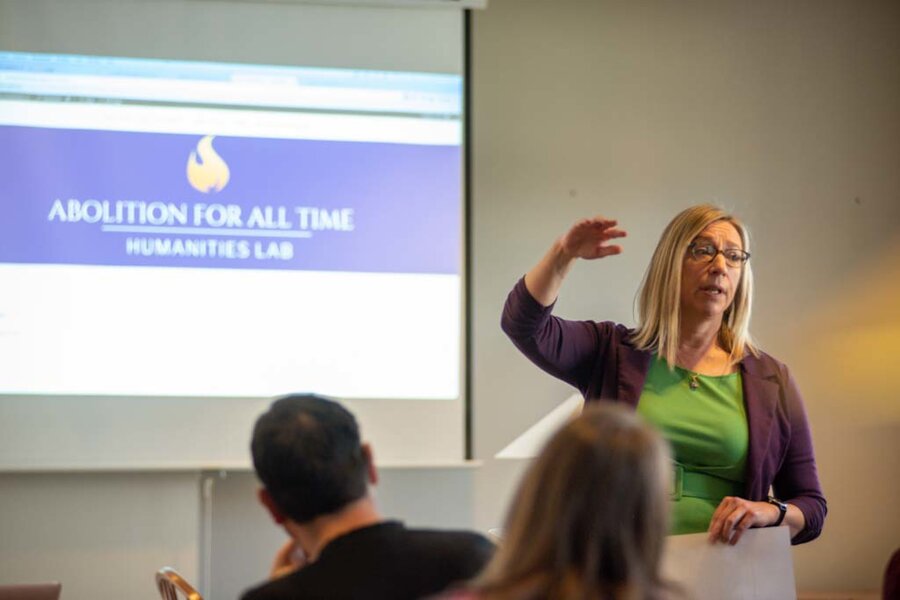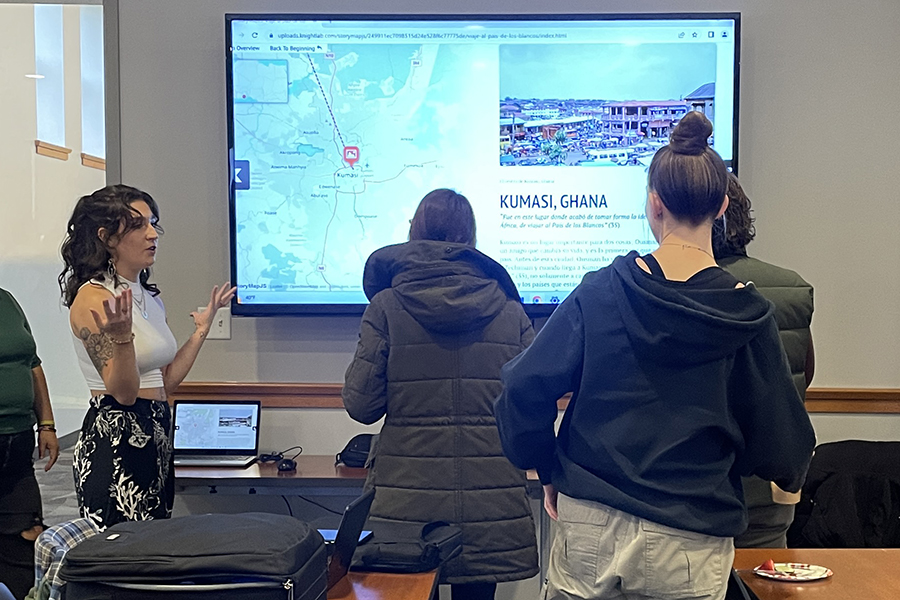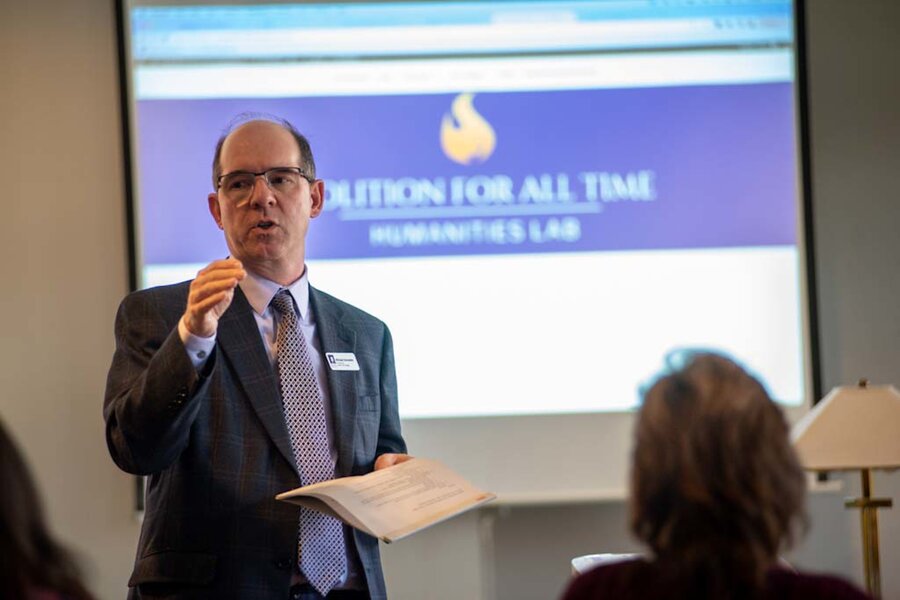

Knox “Abolition for All Time” Lab Completes Year One, Makes Plans for Years Ahead
The first year of the Knox College “Abolition for All Time” Lab came to a close in March, and faculty members across campus involved with the project gathered to discuss the progress made so far.
At the beginning of 2022, the Andrew W. Mellon Foundation awarded Knox College a $1.2 million grant. The funding supports the development of new courses and programs, faculty mentorship of student research projects, and furthering campus understandings of abolition and social justice. The goal is to increase student interest in the humanities. “Abolition is the lens through which we are focusing our goal because it can help us show students why the humanities matter—that humanities education teaches us what matters so that we are empowered to make change in the world,” Associate Dean for Faculty Development Danielle Fatkin said.
Projects fell into two categories: those with a strong focus on the College's history, inviting faculty and students to engage with and assess the College's archives and special collections as a way of developing important research skills; and projects that explore abolitionism in the 21st century, seeking new ways to inspire student engagement with civic issues using humanities methodologies to pursue social justice aims.
The year-one teams focused on the following concepts: developing a liberatory stance towards student education; exploring an abolitionist-informed version of media literacy; questioning standard operating procedures at border detention facilities and prisons; exploring the intersections of education in Business and social justice; expanding access to healthcare in rural America; and celebrating the relationship between abolition and the arts.
Fatkin, who also serves as the lab’s coordinator, says year one served as a springboard for what comes next. She says making people aware of the lab and setting a foundation for humanities work was just as significant as the individual projects themselves. Heading into year two, the goal is to get more faculty and students engaged with new courses and more ambitious ideas.
Fatkin says teams will look at ideas related to increasing civic engagement with the lab’s projects in the years ahead. She also hopes team leaders will find ways to incorporate more hands-on approaches, helping students understand why people care so deeply about the humanities and realize how humanistic study is important to helping them make worldly change.
Members of the Abolition Lab recently submitted their annual report to the Mellon Foundation as a showcase of progress. The report details the many successes of the faculty and students and how they've already implemented new abolitionist frameworks. Here’s a brief recap of what was completed:
- First-year goals were defined in spring 2022, as teams formed and objectives were outlined for the lab’s purpose.
- Digital Humanities Postdoctoral Fellow Jennifer Andrella has led a series of workshops designed to support learning about and adoption of digital tools within humanities classrooms.
- In December 2022, the college hosted a two-day workshop, “Making Knox: The Anti-Slavery and Abolitionist Aspirations of a Midwestern College” led by Catherine Denial, Mary Elizabeth Hand Bright and Edwin Winslow Bright Distinguished Professor & Chair of American History and Director of the Bright Institute.
- Over the course of fall and winter terms, 69 students from five different classes worked with Andrella on digital humanities projects.
- The lab also includes an inter-institutional team, working with Oberlin College, Earlham College, Grinnell College, and Colorado College. This team will combine efforts to expand the historical abolitionist understanding of each institution. A conference is planned in the Spring of 2025, bringing faculty and students from each institution together to showcase their findings.
An archive of each student and faculty project was created to showcase the projects completed over the course of the lab.
Published on April 17, 2023




